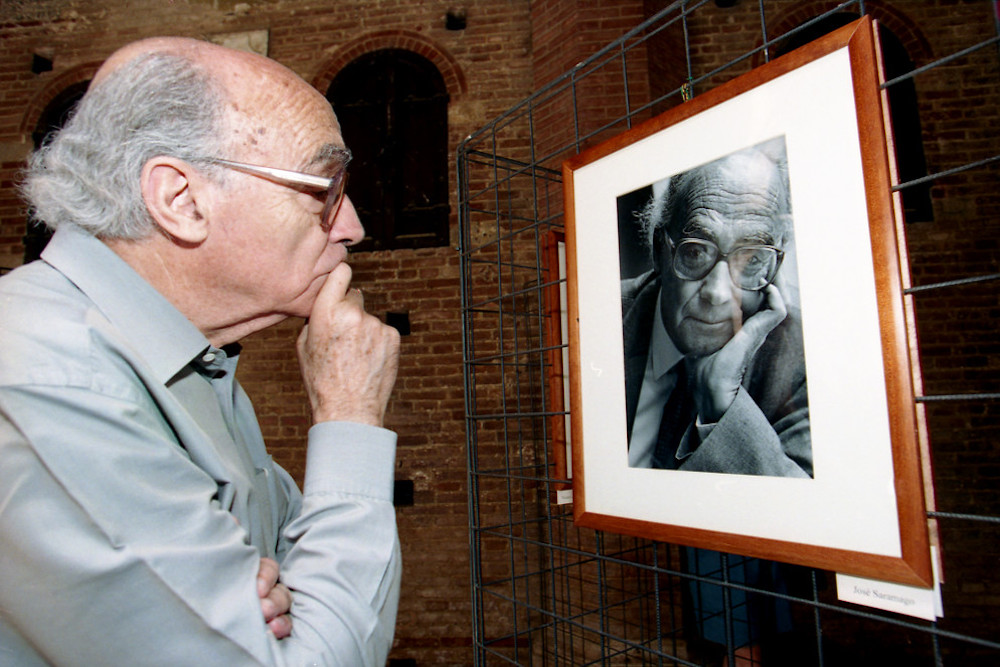Every week, the editors of The Paris Review lift the paywall on a selection of interviews, stories, poems, and more from the magazine’s archive. You can have these unlocked pieces delivered straight to your inbox every Sunday by signing up for the Redux newsletter.
This week, The Paris Review is celebrating the birthdays of three different writers. Read on for José Saramago’s Art of Fiction interview, Isaac Bashevis Singer’s short story “The Murderer,” and Margaret Atwood’s poem “Frogless.”
If you enjoy these free interviews, stories, and poems, why not subscribe to The Paris Review? Or take advantage of our new subscription bundle, bringing you four issues of the print magazine, access to our full sixty-seven-year digital archive, and our new TriBeCa tote for only $69 (plus free shipping!). And for as long as we’re flattening the curve, The Paris Review will be sending out a new weekly newsletter, The Art of Distance, featuring unlocked archival selections, dispatches from the Daily, and efforts from our peer organizations. Read the latest edition here, and then sign up for more.
José Saramago, The Art of Fiction No. 155
Issue no. 149, Winter 1998
In the end, I am quite normal. I don’t have odd habits. I don’t dramatize. Above all, I do not romanticize the act of writing. I don’t talk about the anguish I suffer in creating. I do not have a fear of the blank page, writer’s block, all those things that we hear about writers. I don’t have any of those problems, but I do have problems just like any other person doing any other type of work. Sometimes things do not come out as I want them to, or they don’t come out at all. When things do not come out as well as I would have liked, I have to resign myself to accepting them as they are.
The Murderer
By Isaac Bashevis Singer
Issue no. 228, Spring 2019
They all knew him although no one in Bałtów spoke to him and he spoke to no one. Maryan Skiba had served a prison term of eight years for killing his girlfriend, Zocha, because he caught her in bed with a city hall official. Maryan was a fisherman. After his release from the Lublin prison he returned to his former trade. There was a lake around Bałtów that had carp, pike, and tench. It belonged to a nobleman who permitted the fishermen to fish there for a fee. All day Thursday, and Friday until noon, Maryan would stand in the marketplace beside his tub of live fish. It was impossible to haggle with him, as he had almost ceased speaking. He muttered the cost and no one could get another word out of him. His price was slightly lower than the other fishmongers’ and he generally sold his catch. Sometimes when there were more fish than customers, the others lowered their prices, but not Maryan. It was said that he threw the unsold fish back into the water.
Frogless
By Margaret Atwood
Issue no. 117, Winter 1990
The sore trees cast their leaves
too early. Each twig pinching
shut like a jabbed clam.
Soon there will be a hot gauze of snow
searing the roots.Booze in the spring runoff,
pure antifreeze;
the stream worms drunk and burning.
Tadpoles wrecked in the puddles.Here comes an eel with a dead eye
grown from its cheek.
Would you cook it?
You would if …
And to read more from the Paris Review archives, make sure to subscribe! In addition to four print issues per year, you’ll also receive complete digital access to our sixty-seven years’ worth of archives. Or take advantage of our new subscription bundle, bringing you four issues of the print magazine, access to our full sixty-seven-year digital archive, and our new TriBeCa tote for only $69 (plus free shipping!).
from The Paris Review https://ift.tt/3lGeDY1



Comments
Post a Comment